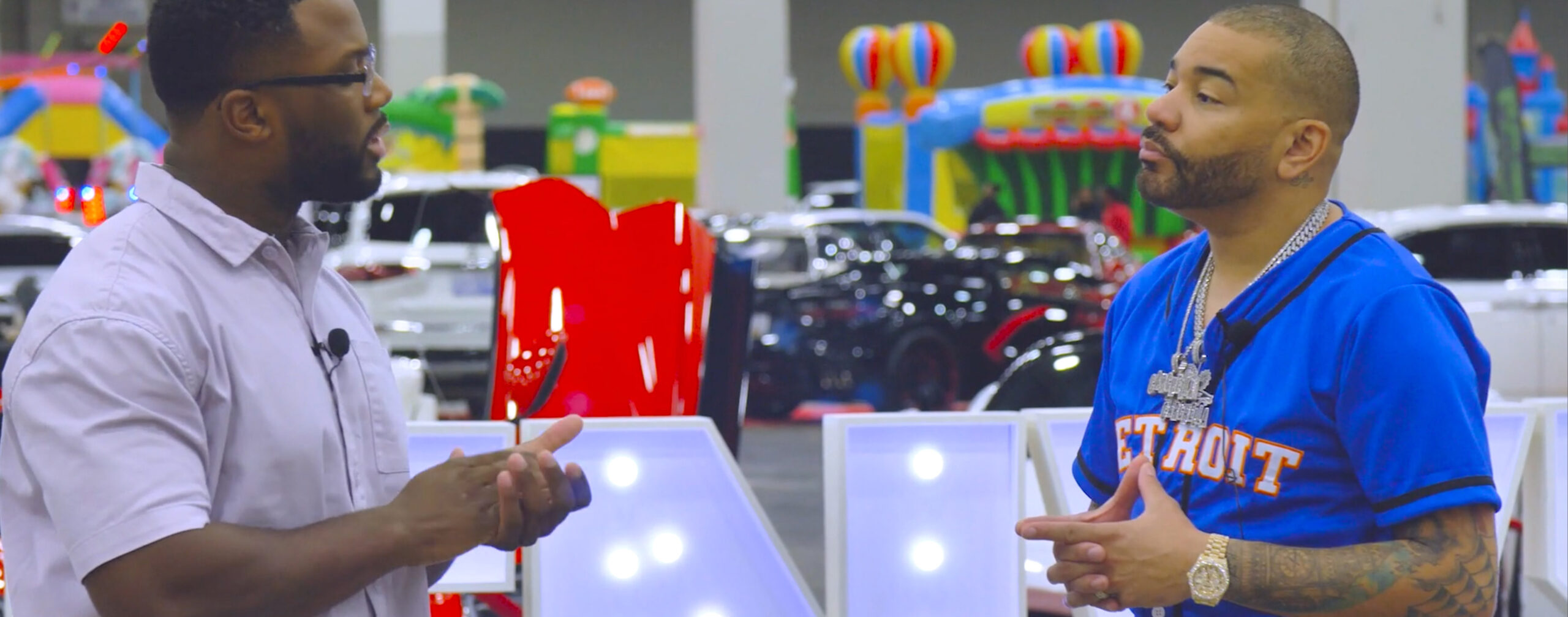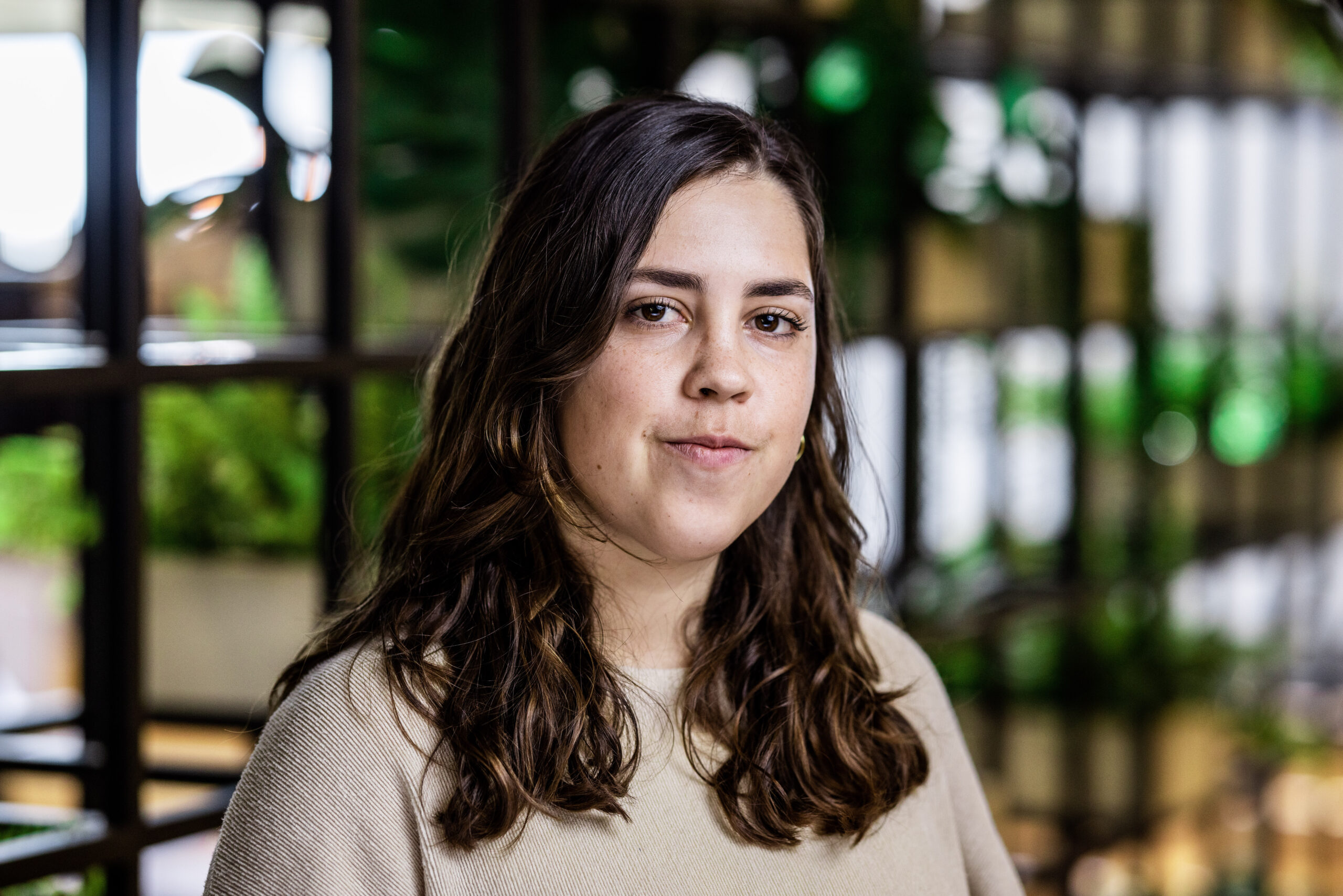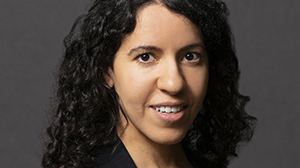Before applying for the Poynter-Koch Media and Journalism Fellowship, Hernz Laguerre, Jr. had worked as an ESPN producer, a freelance videographer, and even as a teacher, introducing filmmaking to students in urban neighborhoods. His goal is to be an on-air personality and he was able to start on that path during his time with the Detroit News.
You played football in college. How did you come to journalism?
I fell in love with storytelling before I found football. I’m Haitian-American, though. As immigrants, my parents wanted me to be a doctor or lawyer. I was taking many math and science classes in high school, but I also loved media and wasn’t sure I wanted to work in medicine. A high school teacher, Mrs. Bond, assigned us a 10-page essay where we had to research a career that interested us.
I told Mrs. Bond I loved Barbara Walters and admired how she could ask questions no one else could. I told her I wished there was somewhere I could do that — a place where I could major in being Barbara Walters! She said there was: journalism. So, I researched the news industry and journalism schools for my project. I’m not sure I would be a journalist today if not for that conversation and Ms. Bond helping me discover my natural passions.
And here you are! Tell me about your fellowship position with the Detroit News.
The fellowship was one of the most impactful years I’ve ever had. I was hired primarily to be a videographer, but also got the chance to pursue stories I was passionate about. And I finally got the chance to be in front of the camera. I interviewed DJ Envy from the syndicated radio show, The Breakfast Club, up-and-coming hip hop artists like Icewear Vezzo from Detroit, and other people in the creative and business community who are trying to revitalize the city. A lot of this material found its way onto the News website and social platforms.
Can you talk about some of the principles you discussed in the program, and why they are important for a reporter to contemplate?
One of the major themes we covered is that readers and viewers are not just consumers of news, they are participants in it. Journalism isn’t guerilla warfare. We can’t just drop in and drop out. We need to consider the dignity of the people we are trying to reach. We need to have empathy and show our humanity.
One of the most amazing pieces of journalism I’ve ever seen is Robin Roberts touring her hometown after a hurricane. It was raw and emotional, but you could see she cared about the people around her and her reporting was more compelling because of it. My innovation project got right at that.
Tell me about that project. From the bottom up, you tried to create a new way for the Detroit News to tell stories. Why is this important?
My project was called Detroit News Explains. I wanted to break down complex subjects and make them tangible for the public using print, audio, and video.
Too many people feel removed from the stories journalists tell. Part of that problem is reporters don’t ask people what they care about. I wanted to hear from Detroit residents. I learned, for example, that people had real questions about who was buying real estate in the city and why they were purchasing it. That deserves to be explored.
Another problem consumers have is time. Whether it is infrastructure or marijuana legalization, many people simply can’t research the history of an issue or dig to find out who the major decision makers are. We have such a diverse array of platforms now that we can present the news in a format people like and that feels natural to them. As storytellers, we need to be creative. By using a multi-media format — part of an explainer series might be video interview with an expert or a deep-dive podcast type piece — we could make the news easier to access and digest.
My goal was to help people feel closer to an issue and understand how it might impact their lives. Due to resource constraints and the fact that my time at the News was ending, we weren’t able to fully implement the idea, but this concept is one I hope to put into place somewhere in the future.
Tell me about your mentor. Do you feel your fellowship experience helped your career progress?
My mentor was former CNN White House correspondent Dan Lothian. He was so accessible. He didn’t just look at my resume. We talked about my career and my development. As a young Black man, he provided a reminder that I can do this, that I belong here, and that I shouldn’t stop pursuing my passion for on-air work.
I met many people eager to help me pursue my goals. I found a job with Court TV through Joie Chen, a veteran network reporter who was a huge resource for me during the fellowship and now. I’m also working as an on-air personality for Detroit’s NPR affiliate, WDET. If I hadn’t been in Detroit working for the News, I probably wouldn’t have been connected to that opportunity.
Let’s get to some deeper questions that underpin the fellowship. Why is local journalism important?
A lot of the change that affects people the most happens at the community level. Local journalism helps people be part of the decision-making process in their cities and states. If we don’t report on these matters, we’re not equipping people to know how to identify and solve problems in their own backyard. The more openness we have, the more informed our public will be and the better our society will be.
What do you think is the biggest challenge facing journalism?
Misinformation. In the fellowship, we talked a lot about how we make sure credible news organizations are given the light they need. This is the challenge of our generation and it’s going to require us to challenge our sources and the public and to be more open and transparent ourselves.



